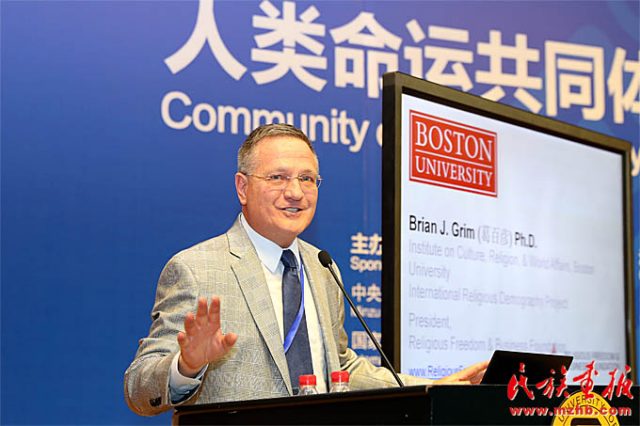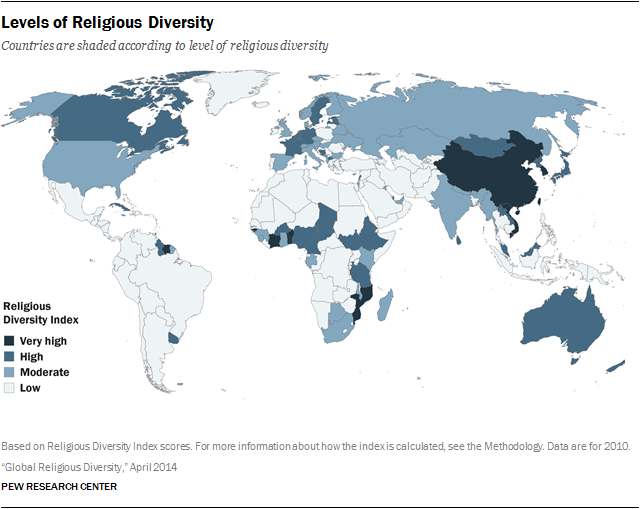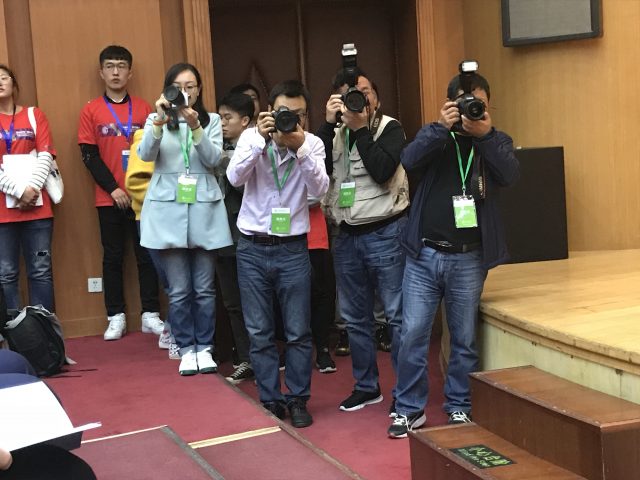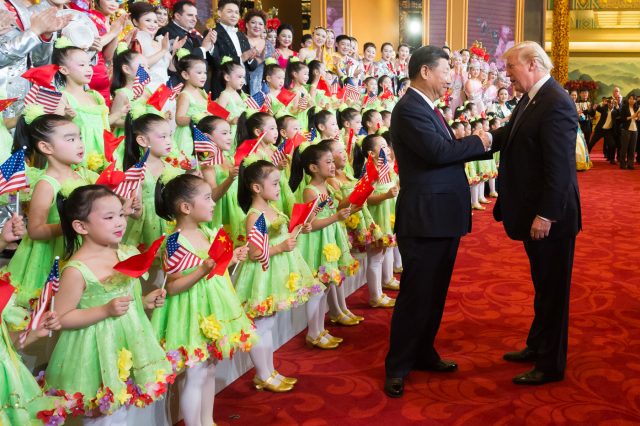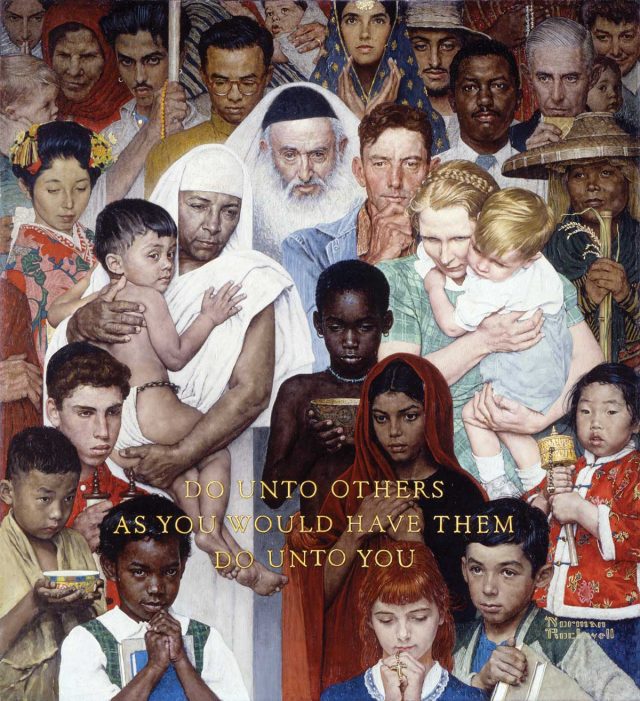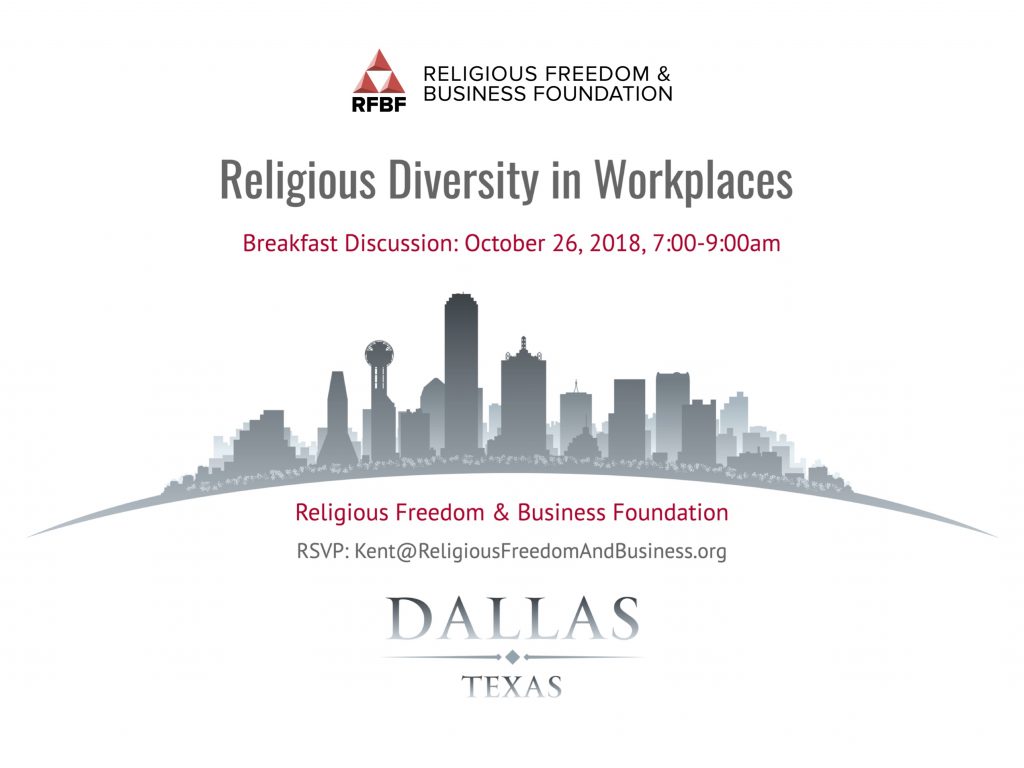What effect does my spirituality have on my profession as an entrepreneur?
by Roberto Murchison* (see original in Spanish)
Summary of comments at 2018 G20 Interfaith Forum, Buenos Aires, Argentina, Sept. 26**
I believe in a God who is creator of heaven and earth and everything in it. I believe that man has been put on earth to be co-creator with God and to act as steward or administrator of his creation.
This implies that we are not the owners and therefore we cannot do what we wish with the creation. This has obvious implications, such as caring for the environment or responsible use of natural resources, but also less obvious, it has implications for our material assets and especially the companies we manage.
We have been placed as owners or administrators of goods that, although they may belong to us legally, in the spiritual arena they belong to God and therefore their main function is not to satisfy our selfish material yearnings, but rather their purpose is for the common good of humanity and creation.
Implications of Faith for My Work
On a personal level, cultivating a spirituality, in my case being a Protestant Christian, has enriched me as a person and therefore as an entrepreneur. This spirituality has implications for me as an entrepreneur in five areas.
1. “Accountability” – rendering of accounts
This little known and applied term in these latitudes implies that even though we are owners we have to render an account and at one point it is a shareholder that not only sees an audited balance. Look at the intentions with which the company is handled, the transparency, the care of the people and to whom there are no drawers where to hide things. It’s like a driver with notebooks sitting at one’s desk.
2. Love your enemies
This is a very complicated aspect for me. In the business world one often comes across “enemies”, people who want things to be different from what they think they should be. Sometimes things or proposals that are dishonest, but others that are honest but that one does not like such as trade negotiations, bids, competitors that improve prices, etc, etc and one must develop an attitude of not hating those people. This concept is kicked out with business schools or business cultures based on the strategy of war.
3. Love your neighbor as yourself
Concept common to almost all religions of the world. Being an engineer and of Saxon family origin, all the emotional topics are a learning for me. Spirituality has helped me a lot in this aspect of my life and my work as an entrepreneur. Understand more and better the human being. On the one hand knowing myself better to know the other.
4. In God’s world there are no hierarchies or discrimination
For God there are no people more valuable or important than others. The Bible, both in the old testament and in the new one in the time of Jesus, has many examples in which God shows the value he gives to people regardless of their origin, gender, social status, etc.
This has had two implications on a personal level. On the one hand the development of humility, not necessarily in modesty but in a deeper vision of understanding that everyone in the company is important regardless of the work that we have to do. The other aspect has to do with working to eliminate the preconceptions that we all have that make us consciously or unconsciously discriminate in some way, be it by gender, education or whatever.
5. Understand that God is in control
This is a very important aspect in Argentina. Being an entrepreneur here can be very unhealthy if one takes a bite all goes and comes from the economy and its impact on companies. I have worried about so many things that did not happen then and I have relied so much on things that finally did not happen that I have humbly come to the conclusion that you have to do the best you can, but then you have to trust that things happen as God wants. and we must at one point accept their sovereignty if it is for good or for bad.
How Religious Ethics Relate to the Economy
Then, going from the personal to the general, how should faith and ethics that comes from religion impact or guide the economy?
First of all, I’m not sure that ethics comes from religion, I think it comes from spirituality and having a personal relationship with God. I am not a Christian because I obey God, but, because I am a Christian, I want to obey his precepts.
Increasingly I believe in the impact we can have on our square meter. The contagious effect of having a positive, kind or forgiving attitude on the people around us. It is like the Chain of Favors in the movie Pay it Forward.
The West has the problem that is because in general societies have turned their backs on God and therefore there is no will to obey its precepts.
Passing Spiritual Values to the Next Generation
The last question to cover is how I would pass these religious / ethical values in business to the next generations.
The only way to pass the precepts and values to the next generation is to live them in the flesh. Luckily we live in a much more transparent society, we know everything and today the kids or the next generations see through the walls, they know how to measure intentions better than we do. It is of no use to preach values; they must be lived or they do not exist.
I’d like to conclude with the words of St. Francis of Assisi, “Preach the Gospel at all times. When necessary, use words.”
* Roberto Murchison is CEO of Grupo Murchison, dedicated to port and logistic activities in Argentina. He is the President of Terminal Zárate, Vice-President of Murcan, and managing director of Murchison Uruguay. He is also the President of Cámara de Puertos Privados y Comerciales (CPPC). He is an industrial engineer educated at Instituto Tecnológico de Buenos Aires (ITBA) and holds a Master’s in Business Administration from the Sloan School of Management of the Massachusetts Institute of Technology (MIT – Boston, USA). Murchison is on the advisory board of Asociación Cristiana de Direigentes de Empresa (ACDE).
 ** The G20 Interfaith Forum took place from 26-28 September 2018 in Buenos Aires under the slogan “Build a consensus for fair and sustainable development. Religious contributions for a dignified future “. ACDE participated in the parallel session on “Faith and finances: commitments and religious contributions” that took place on Wednesday, September 26 in the afternoon at the Sheraton Buenos Aires Hotel. The panel was shared by Roberto Murchison , CEO of the Murchison Group, together with Federico Quintana , vice president of ACDE, and moderated by Brian Grim, President of the Religious Freedom and Business Foundation of the United States. The objective of this panel was to reflect on the practical challenges that arise when living spirituality in coherence with the business profession.
** The G20 Interfaith Forum took place from 26-28 September 2018 in Buenos Aires under the slogan “Build a consensus for fair and sustainable development. Religious contributions for a dignified future “. ACDE participated in the parallel session on “Faith and finances: commitments and religious contributions” that took place on Wednesday, September 26 in the afternoon at the Sheraton Buenos Aires Hotel. The panel was shared by Roberto Murchison , CEO of the Murchison Group, together with Federico Quintana , vice president of ACDE, and moderated by Brian Grim, President of the Religious Freedom and Business Foundation of the United States. The objective of this panel was to reflect on the practical challenges that arise when living spirituality in coherence with the business profession.


